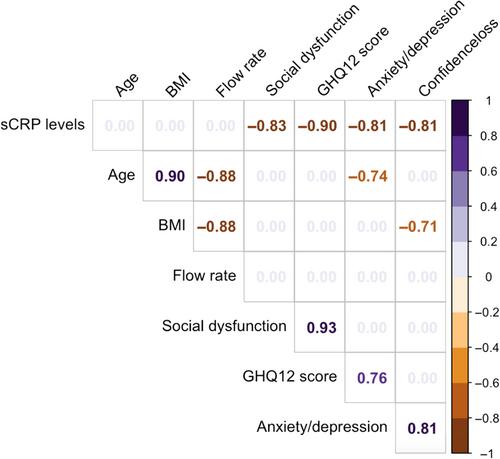The impacts of stress on inflammation, although hypothesized, have not been thoroughly examined, especially in relation to social and environmental factors and particularly within Black populations. This study aims to explore the biological mechanisms of embodiment linking stress and health to understand physiological changes in the body's response to psychological stress in a Nigerian population. Through a multidisciplinary approach, this study queries the relationship between stress, cortisol, and salivary C-reactive protein (sCRP), a biomarker of inflammation, while also validating the use of sCRP as a potential and accurate stress indicator in the field.
In this cross-sectional study, 138 passive drool saliva samples (n female = 89 n male = 49) were collected and assessed for sCRP and cortisol levels in adults. Participants also completed a short demographic survey and, to measure psychological stress, the General Health Questionnaire 12 (GHQ-12). Relationships between sCRP and stress-related variables (i.e., cortisol, GHQ-12, and demographic data) were assessed using Spearman's correlations, simple regression, multivariable linear regression, and exploratory factor analysis.
sCRP levels ranged from 20.57 to 6879.41 pg/mL across all samples, with significant differences between female and male participants. The GHQ-12 was not a significant predictor of sCRP variability. However, socio-demographic factors such as body mass index (BMI), age, self-reported sex, ethnic identity, and cortisol were significant predictors, collectively explaining 24%–27% of the variation in sCRP.
Socio-demographic predictors like BMI, age, sex, and particularly ethnic group experience in Nigeria encapsulate aspects of embodied stress, that significantly affect sCRP variability.


